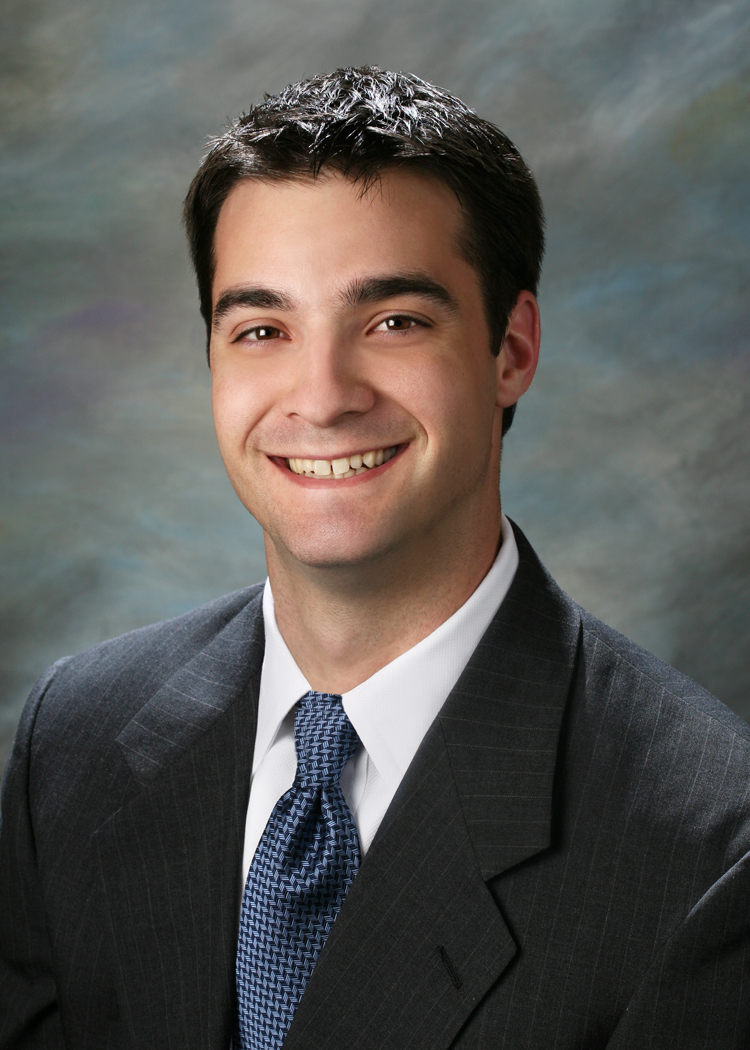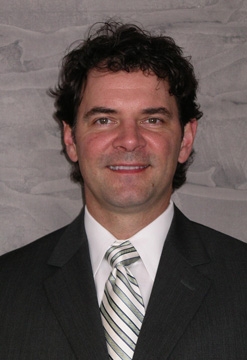Five spine industry experts discuss spine surgery coverage policy changes over the past year.
Ask Spine Surgeons is a weekly series of questions posed to spine surgeons around the country about clinical, business and policy issues affecting spine care. We invite all spine surgeon and specialist responses. Next week's question: On average, how much time do you and your office staff members spend on the phone with insurance companies per week?
Please send responses to Laura Miller at lmiller@beckershealthcare.com by Thursday, Oct. 25, at 5 p.m. CST. Q: What, if any, changes have you seen from payors in your market over the past year for spine surgery coverage?
 Brian Gill, MD, Spine Surgeon, Nebraska Spine Center, Omaha: I have experienced more denials in elective spine surgeries even in cases where instability is present. I have seen more surgeries be delayed due to lack of conservative care although during peer to peer reviews, the reviewers are unable to define conservative care or the required/expected duration. Furthermore, their policies are constantly changing from month to month and case by case. Recently, I have seen more payors deny the use of biologics such as bone morphogenic protein and other bone graft extenders. More payors are limiting what we can offer and thus placing us in a position to use autograft sources in which there is only a limited supply.
Brian Gill, MD, Spine Surgeon, Nebraska Spine Center, Omaha: I have experienced more denials in elective spine surgeries even in cases where instability is present. I have seen more surgeries be delayed due to lack of conservative care although during peer to peer reviews, the reviewers are unable to define conservative care or the required/expected duration. Furthermore, their policies are constantly changing from month to month and case by case. Recently, I have seen more payors deny the use of biologics such as bone morphogenic protein and other bone graft extenders. More payors are limiting what we can offer and thus placing us in a position to use autograft sources in which there is only a limited supply.
Hooman Melamed, MD, Orthopedic Spine Surgeon, Marina Del Rey (Calif.) Hospital: Reimbursement has started to dramatically decrease. We are seeing less than in the past for the same exact cases. Even more ridiculous, they lump multi-level scoliosis surgery codes together. It used to be they paid for every two levels, now there is one payment for eight levels. We are doing the same amount of work, but getting paid less. The same thing is happening with decompression codes; if you have to decompress three levels, Medicare says they will pay the original rate for the first level and drop down 50 percent for the next level and 25 percent for the next level. I do all this work and end up getting paid the same amount as if I were doing a two-level fusion.
multi-level scoliosis surgery codes together. It used to be they paid for every two levels, now there is one payment for eight levels. We are doing the same amount of work, but getting paid less. The same thing is happening with decompression codes; if you have to decompress three levels, Medicare says they will pay the original rate for the first level and drop down 50 percent for the next level and 25 percent for the next level. I do all this work and end up getting paid the same amount as if I were doing a two-level fusion.
Payors are also denying a lot more procedures than in the past. If you decompress both sides of the spine, they might not pay for it because they consider it the same level even though you are doing more work. They aren't paying for ancillary things like using a microscope for a better and safer surgery. They are paying less for a surgeon to assist during surgery and physicians' assistants. If you go assist someone for the case, it could be six or seven hours and we only get $300 to $400. It's very frustrating.
Finally, the insurance companies are denying treatments saying they are medically unnecessary. They come up with vague reasons or they don't even give a reason. We did emergency surgery for a patient who could not walk when she came in and was losing function; we found massive disc herniation on the MRI and instability. We performed the emergency surgery and submitted the claim, and eight days later the insurance company said it was medically unnecessary.
Andy Salmen, Healthcare Information Services: Spine reimbursement has changed tremendously over the past two years. The CPT panel created combination codes and bundled some procedures to one another:
• 22551 was a new code in the CPT book for 2011. In this code they combined anterior spine fusion and decompression of spine canal or nerve roots. We were no longer able to bill 22554+63081 because they combined it to one code. Also, NCCI bundled osteotomy and corpectomy codes to 22551. Therefore, many carriers are not paying for these procedures.
• 22633 was a new code in the CPT book for 2012. Once again they combined the posterior fusion and posterior interbody fusion. We are no longer able to bill 22612+22630 because they combined to one code.
• Carriers such as Humana and Aetna have considered spine fusions and laminectomy experimental. Both of these carriers have established medical necessity criteria to cover these procedures. If their criteria are not met they do not cover. All other carriers pay for these procedures without any restriction, so I'm unsure why these carriers have created these policies.
The current trend in spine surgery is that CPT is continuing to create combination codes for spine procedures. This would not be such a bad thing if the RVU value for the combined procedures was comparable. However, the RVU value of many of these new combined codes creates a reduction in the reimbursement for these services.
 Paul Slosar, MD, President, SpineCare Medical Group, San Francisco Spine Institute: The payors have adopted policies that ALL lumbar fusions for degenerative disc disease will be DENIED, regardless of the fact that clinical evidence supports this as a reasonable treatment for end-stage, recalcitrant cases. If one were to draw a parallel to knees and hips, the payors would deny all total joint replacements for patients with end-stage DJD unless the patient had instability or neurologic damage. We appeal everything, we write letters that delineate all the justifications, we talk on the phone with insurance doctors, begging them to approve standard surgical treatments. "Sorry," they say, "that doesn't fit in the Milliman Guidelines."
Paul Slosar, MD, President, SpineCare Medical Group, San Francisco Spine Institute: The payors have adopted policies that ALL lumbar fusions for degenerative disc disease will be DENIED, regardless of the fact that clinical evidence supports this as a reasonable treatment for end-stage, recalcitrant cases. If one were to draw a parallel to knees and hips, the payors would deny all total joint replacements for patients with end-stage DJD unless the patient had instability or neurologic damage. We appeal everything, we write letters that delineate all the justifications, we talk on the phone with insurance doctors, begging them to approve standard surgical treatments. "Sorry," they say, "that doesn't fit in the Milliman Guidelines."
Just last week, an insurance company doctor told me that they don't believe what we dictate in our clinical notes. Therefore, they overburden our staff, insisting that we collect all the treatment notes from outside clinicians over the past six to 12 months (including therapy, injections, consultations) and send those in so they can "verify" that the patient is not getting "unnecessary surgery." The strategy is apparently to make it so difficult that the doctors and patients simply give up. This is what it has come to for patients needing surgical treatments of the spine.
Jeffrey Wang, MD, Spine Surgeon, UCLA Spine Center: I find that the payors are not authorizing any of the more contemporary technologies or novel products. This has always been the case, but I am seeing it more and more, especially with refusal to pay for disc arthroplasty. The more concerning issue is that they are now trying to refuse to pay for patients having standard fusion surgeries for patients who really need a fusion and are appropriate for the surgery. I also see where one payor agreed that the patient needed surgery for a revision of an implanted arthroplasty put in by another surgeon and failed. The payor agreed that the patient needed surgery and that it was appropriate, but since they did not authorize the initial surgery, they refused to pay for the revision of that surgery.
refusal to pay for disc arthroplasty. The more concerning issue is that they are now trying to refuse to pay for patients having standard fusion surgeries for patients who really need a fusion and are appropriate for the surgery. I also see where one payor agreed that the patient needed surgery for a revision of an implanted arthroplasty put in by another surgeon and failed. The payor agreed that the patient needed surgery and that it was appropriate, but since they did not authorize the initial surgery, they refused to pay for the revision of that surgery.
CPT copyright 2010 American Medical Association. All rights reserved. CPT is a registered trademark of the American Medical Association.
More Articles on Spine Surgery:
Where is Spine Research Headed? 4 Surgeon Responses
6 Spine Surgeons on Most Exciting Technology for the Future
8 Steps for Best Results When Hiring a Spine Practice Manager
Ask Spine Surgeons is a weekly series of questions posed to spine surgeons around the country about clinical, business and policy issues affecting spine care. We invite all spine surgeon and specialist responses. Next week's question: On average, how much time do you and your office staff members spend on the phone with insurance companies per week?
Please send responses to Laura Miller at lmiller@beckershealthcare.com by Thursday, Oct. 25, at 5 p.m. CST. Q: What, if any, changes have you seen from payors in your market over the past year for spine surgery coverage?
 Brian Gill, MD, Spine Surgeon, Nebraska Spine Center, Omaha: I have experienced more denials in elective spine surgeries even in cases where instability is present. I have seen more surgeries be delayed due to lack of conservative care although during peer to peer reviews, the reviewers are unable to define conservative care or the required/expected duration. Furthermore, their policies are constantly changing from month to month and case by case. Recently, I have seen more payors deny the use of biologics such as bone morphogenic protein and other bone graft extenders. More payors are limiting what we can offer and thus placing us in a position to use autograft sources in which there is only a limited supply.
Brian Gill, MD, Spine Surgeon, Nebraska Spine Center, Omaha: I have experienced more denials in elective spine surgeries even in cases where instability is present. I have seen more surgeries be delayed due to lack of conservative care although during peer to peer reviews, the reviewers are unable to define conservative care or the required/expected duration. Furthermore, their policies are constantly changing from month to month and case by case. Recently, I have seen more payors deny the use of biologics such as bone morphogenic protein and other bone graft extenders. More payors are limiting what we can offer and thus placing us in a position to use autograft sources in which there is only a limited supply.Hooman Melamed, MD, Orthopedic Spine Surgeon, Marina Del Rey (Calif.) Hospital: Reimbursement has started to dramatically decrease. We are seeing less than in the past for the same exact cases. Even more ridiculous, they lump
 multi-level scoliosis surgery codes together. It used to be they paid for every two levels, now there is one payment for eight levels. We are doing the same amount of work, but getting paid less. The same thing is happening with decompression codes; if you have to decompress three levels, Medicare says they will pay the original rate for the first level and drop down 50 percent for the next level and 25 percent for the next level. I do all this work and end up getting paid the same amount as if I were doing a two-level fusion.
multi-level scoliosis surgery codes together. It used to be they paid for every two levels, now there is one payment for eight levels. We are doing the same amount of work, but getting paid less. The same thing is happening with decompression codes; if you have to decompress three levels, Medicare says they will pay the original rate for the first level and drop down 50 percent for the next level and 25 percent for the next level. I do all this work and end up getting paid the same amount as if I were doing a two-level fusion.Payors are also denying a lot more procedures than in the past. If you decompress both sides of the spine, they might not pay for it because they consider it the same level even though you are doing more work. They aren't paying for ancillary things like using a microscope for a better and safer surgery. They are paying less for a surgeon to assist during surgery and physicians' assistants. If you go assist someone for the case, it could be six or seven hours and we only get $300 to $400. It's very frustrating.
Finally, the insurance companies are denying treatments saying they are medically unnecessary. They come up with vague reasons or they don't even give a reason. We did emergency surgery for a patient who could not walk when she came in and was losing function; we found massive disc herniation on the MRI and instability. We performed the emergency surgery and submitted the claim, and eight days later the insurance company said it was medically unnecessary.
Andy Salmen, Healthcare Information Services: Spine reimbursement has changed tremendously over the past two years. The CPT panel created combination codes and bundled some procedures to one another:
• 22551 was a new code in the CPT book for 2011. In this code they combined anterior spine fusion and decompression of spine canal or nerve roots. We were no longer able to bill 22554+63081 because they combined it to one code. Also, NCCI bundled osteotomy and corpectomy codes to 22551. Therefore, many carriers are not paying for these procedures.
• 22633 was a new code in the CPT book for 2012. Once again they combined the posterior fusion and posterior interbody fusion. We are no longer able to bill 22612+22630 because they combined to one code.
• Carriers such as Humana and Aetna have considered spine fusions and laminectomy experimental. Both of these carriers have established medical necessity criteria to cover these procedures. If their criteria are not met they do not cover. All other carriers pay for these procedures without any restriction, so I'm unsure why these carriers have created these policies.
The current trend in spine surgery is that CPT is continuing to create combination codes for spine procedures. This would not be such a bad thing if the RVU value for the combined procedures was comparable. However, the RVU value of many of these new combined codes creates a reduction in the reimbursement for these services.
 Paul Slosar, MD, President, SpineCare Medical Group, San Francisco Spine Institute: The payors have adopted policies that ALL lumbar fusions for degenerative disc disease will be DENIED, regardless of the fact that clinical evidence supports this as a reasonable treatment for end-stage, recalcitrant cases. If one were to draw a parallel to knees and hips, the payors would deny all total joint replacements for patients with end-stage DJD unless the patient had instability or neurologic damage. We appeal everything, we write letters that delineate all the justifications, we talk on the phone with insurance doctors, begging them to approve standard surgical treatments. "Sorry," they say, "that doesn't fit in the Milliman Guidelines."
Paul Slosar, MD, President, SpineCare Medical Group, San Francisco Spine Institute: The payors have adopted policies that ALL lumbar fusions for degenerative disc disease will be DENIED, regardless of the fact that clinical evidence supports this as a reasonable treatment for end-stage, recalcitrant cases. If one were to draw a parallel to knees and hips, the payors would deny all total joint replacements for patients with end-stage DJD unless the patient had instability or neurologic damage. We appeal everything, we write letters that delineate all the justifications, we talk on the phone with insurance doctors, begging them to approve standard surgical treatments. "Sorry," they say, "that doesn't fit in the Milliman Guidelines."Just last week, an insurance company doctor told me that they don't believe what we dictate in our clinical notes. Therefore, they overburden our staff, insisting that we collect all the treatment notes from outside clinicians over the past six to 12 months (including therapy, injections, consultations) and send those in so they can "verify" that the patient is not getting "unnecessary surgery." The strategy is apparently to make it so difficult that the doctors and patients simply give up. This is what it has come to for patients needing surgical treatments of the spine.
Jeffrey Wang, MD, Spine Surgeon, UCLA Spine Center: I find that the payors are not authorizing any of the more contemporary technologies or novel products. This has always been the case, but I am seeing it more and more, especially with
 refusal to pay for disc arthroplasty. The more concerning issue is that they are now trying to refuse to pay for patients having standard fusion surgeries for patients who really need a fusion and are appropriate for the surgery. I also see where one payor agreed that the patient needed surgery for a revision of an implanted arthroplasty put in by another surgeon and failed. The payor agreed that the patient needed surgery and that it was appropriate, but since they did not authorize the initial surgery, they refused to pay for the revision of that surgery.
refusal to pay for disc arthroplasty. The more concerning issue is that they are now trying to refuse to pay for patients having standard fusion surgeries for patients who really need a fusion and are appropriate for the surgery. I also see where one payor agreed that the patient needed surgery for a revision of an implanted arthroplasty put in by another surgeon and failed. The payor agreed that the patient needed surgery and that it was appropriate, but since they did not authorize the initial surgery, they refused to pay for the revision of that surgery.CPT copyright 2010 American Medical Association. All rights reserved. CPT is a registered trademark of the American Medical Association.
More Articles on Spine Surgery:
Where is Spine Research Headed? 4 Surgeon Responses
6 Spine Surgeons on Most Exciting Technology for the Future
8 Steps for Best Results When Hiring a Spine Practice Manager

